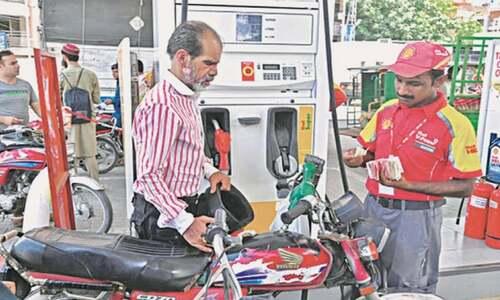
DURING the inaugural session of Karachi Arts Council’s Aalmi Urdu Conference organised in December 2021, Dr Tariq Rahman in his keynote address advocated the case for adopting six Pakistani languages as “national languages”.
While everyone has every right to promote their ideas, what perturbed students like this writer was his claim that India had “24 national languages”. He said if India could have “24 national languages”, why can’t we have six?
Dr Tariq is a well-known linguist and a veteran scholar respected for his knowledge. So it was surprising to listen him say such a “strange” thing. The fact is: India does not have “24 national languages”. What it has instead are 28 “state languages”, adopted by Indian states. Article 343 of the constitution of India says that Hindi is the “official language”, written in Devanagari script. India’s Official Language Act 1963 allowed the use of English as official language along with Hindi.
Firstly, contrary to general perception, Hindi is not the “national language” of India. In fact, no language is mentioned in Indian constitution as “national language”, so Dr Tariq’s logic for having six languages as Pakistan’s national languages simply does not have any ground. India’s constitution in its eighth schedule recognises 22 languages as “scheduled languages”. Some languages, such as Sanskrit, Tamil and a few others, are given the status of “classical languages”.
Secondly, a province in India is called a “state”, just as a “state” in “United States” is a constituent entity and all the states are bound as a union under a federal government. India is a union and has 28 federating units or administrative divisions each of which is called a “state”. There are 28 “official state languages” of Indian states and they are not “national languages”. Some Indian states have “additional” official languages, for example, Bihar has Hindi as official language and Urdu is “additional official language” there. Jharkhand has several additional official languages and a controversy is raging these days as a couple of languages have been dropped from the list of state’s official languages.
So India has state languages as official languages in states (read: provinces) and they are simply not national languages. At federal level, they have Hindi and it is not national language, but just official language alongside English. Article 251 of Pakistan’s constitution says that Urdu “is” the national language of the country and it is to replace English as official language. But the same article of the constitution allows and encourages Pakistani provinces to have their local language/s as official language/s and protect and promote them.
While some lobbies have been pushing forward the case for multiple national languages in Pakistan for over a decade now and though people have a right to choose what they like, these lobbies should not distort and mutilate the facts to force their agenda. We must respect each and every “Pakistani” language (calling them “regional” languages is derogatory) and support those who want to preserve and promote them, but adopting multiple national languages is a recipe for disaster. Urdu serves as a lingua franca, or contact language, in Pakistan, spoken and understood across the country, unlike India where Hindi is not understood in southern states and northern India does not understate southern India’s languages like Tamil, Telugu, Kannada and Malayalam.
In 1960s, there was a strong movement in southern Indian states against Hindi and a trilingual formula had to be adopted in National Language Policy 1968, which allowed using Hindi, English and one Indian language. Whereas in Pakistan Urdu unites the country and binds the people of Pakistan together as it is understood, spoken, written and read in every part of the country.
Over 75 languages are spoken in Pakistan and making just six of them national languages is tantamount to instigating the speakers of rest of the languages to protest and agitation.
One must realise what vital role Urdu plays as a uniting factor in Pakistan and what would be the consequences of having multiple national languages. Aftab Hasan, usually known as Major Aftab Hasan, was one of the scholars who tirelessly worked for making Urdu Pakistan’s official language. Muhammad Islam Nishter’s recently published book Rahber-i-Nifaz-i-Urdu Major Aftab Hasan: Hayat-o-Khidmaat not only describes Aftab Hasan’s life, his works and his contribution for Urdu’s promotion but also narrates the history of Muqtadira Qaumi Zaban or National Language Authority (NLA) (reamed as Idara-i-Farogh-i-Qaumi Zaban or National Language Promotion Department). It tells how Karachi University declared Urdu as the medium of instruction, how it angered Ayub Khan’s government and how Ziaul Haq’s government supported the cause of Urdu, paving the way for the establishment of the NLA.
Published by Jahan-i-Science, Lahore, the book is prohibitively priced. Born on Sept 16, 1919, in Bazidpur, Bihar, Aftab Hasan died in Karachi on Feb 26, 1993.
Published in Dawn, February 28th, 2022













































Dear visitor, the comments section is undergoing an overhaul and will return soon.